It depends on what you mean by normal.
Sure, there have been certain years of bucolic peace and bounteous plenty.

Villagers were born,
went about their business,
and passed on to their eternal reward...
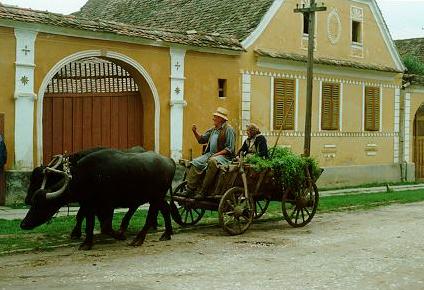
And if Transylvania has a coat of arms, it must have some kind of history worth relating.
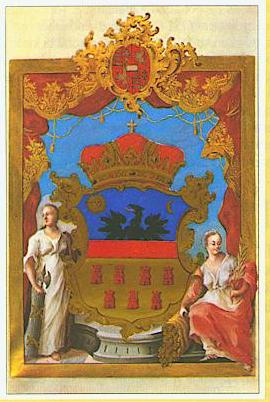
Notice the depiction of seven castles at the bottom of the coat of arms (Siebenbürgen = "Seven Castles")
and of Marianne's great-great-great grandmother holding sheaves of barley and rye on the right-hand side.
Most importantly: it is an eagle flapping its wings below the crown, not a vampire bat...
just temporarily a principality
and then a region that has been controlled
by various foreign rulers,
foreign war parties
and those just riding through to wreak havoc:
Martin Luther's concept sound-bite of "A Mighty Fortress Is Our God" could have been taken from the church buildings of Transylvania, where the idea was not only to invite the Holy Spirit in,
but also to keep the unholy and mean spirits out.
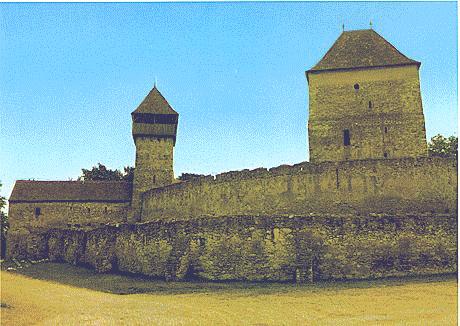
There is a word in German, Kirchenburg, that means "Church Castle."
Upon leaving church, your first view would have been of the walls between you and the enemy,
and "compassionate service" would be more like "O'er the Ramparts We Watched."
Food was stockpiled, wells were dug, and in times of emergency
the townspeople had to live in the church for months at a time.
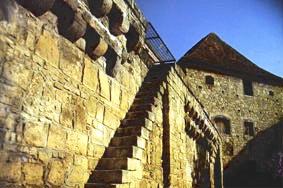
were not designed to look romantic for tourists,
but as a defense against people trying to send you on to your reward prematurely.
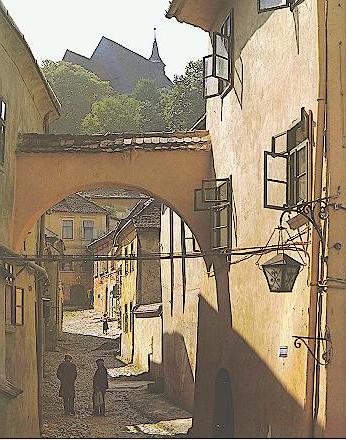
Just for three short examples of how war visited Marianne's hometown: